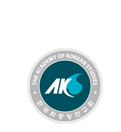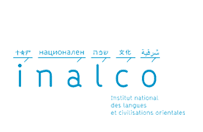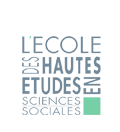CALL FOR APPLICATIONS FOR 2021 (Jan. 1 – Dec. 31)
DEADLINE: 15 SEPTEMBER 2020
The European Program for the Exchange of Lecturers (EPEL) is sponsored by the Korea Foundation and administered by AKSE. Every year AKSE draws up a comprehensive proposal and budget for future years, based on the proposals from individual universities.
Lectures sponsored by this program should be an integral part of the curriculum of the institution where they are presented. The lecturers are reimbursed for their travel within European countries, accommodation expenses, and meals by the AKSE Treasurer, upon presentation of receipts, but lecturers are not paid a lecture fee. This program offers excellent opportunities for AKSE members to augment their institutional offerings and to meet and exchange ideas concerning both research and teaching.
Please send your proposal for EPEL lectures taking place during the calendar year 2021 to the AKSE President by 15 September 2020. Your proposal must contain: the names of scholars, the titles of lectures, the dates of the lectures, a budget for transportation, hotel, and meals. All applications must be sent to the President of AKSE in Microsoft WORD. Lecturers will pay their own expenses and then request reimbursement by sending the correct form with receipts to the treasurer, Dr. Koen De Ceuster. All reports of lectures given have to be sent to the President of AKSE for report to the Korea Foundation.
Further Guidelines for Applications to EPEL
Priority is given to applications from universities where there are few teaching staff. EPEL Guest Lecturers can assist teaching staff in replacing a limited number of teaching hours. EPEL lectures have to be a part of courses taught and not form a special seminar. The lectures have to offer academic credits or units and form a part of examinations. All applications must explain how these conditions are met. The AKSE President and Council will endeavour to secure adequate funding from the Korea Foundation to support EPEL applications, but the final funding decision resides with the Korea Foundation and only partial funding may finally be available to applicants. These circumstances are beyond the control of the AKSE President and Council. It is for these reasons that applicant universities are strongly encouraged to seek and secure alternative sources to support Guest Lecturers.
Specific Guidelines:
1) All applications are judged on their quality.
2) All proposals should offer an overview of the teaching program and specify how many staff teach primarily for Korean Studies.
3) If any invited scholar cancels within one month of the scheduled lecture without reasonable cause (illness or other unforeseen circumstances) he or she cannot be invited to be a Guest Lecturer within any EPEL application for a period of 2 years. In case of cancellation, the applicant university has to immediately contact the AKSE President and propose a replacement name so that the new proposal can be evaluated. Notification has to be done within one week of cancellation. If the applicant university does not follow these procedures regarding cancellations, then the university cannot apply for EPEL funding in the following year.
4) Each university can apply for a maximum of €2,500 and is responsible for administering their budget. The AKSE Council will not supply any additional funding beyond the original application amount. Any additional costs, even unforeseen, must be borne by the applicant university or the Guest Lecturer.
5) Each Guest Lecturer will be informed of the total amount they are allotted for transportation, hotel, and meals by the applicant university. The Guest Lecturer is free to spend their allotment in the best way they see fit in any mixture. For example, if transportation costs are much lower than originally anticipated, then the Guest Lecturer is free to upgrade their hotel or to spend more on meals. The AKSE Council encourages the expenditure of the full budget amount, but any expenditure in excess of the total amount allotted by the original budget will be the responsibility of the Guest Lecturer or the applicant university.
6) All Guest Lecturers are responsible for keeping track of their expenditures, collecting their own receipts, and then submitting a reimbursement form to the AKSE Treasurer. A reimbursement form is available on the AKSE website.
In addition, please note:
a) To better fit with the support cycles of the Korea Foundation, the extension of EPEL rounds has been adjusted: Rather than roughly conforming to academic years, it will from now on correspond to the calendar year.
b) Due to CoViD19, it remains uncertain whether guest lectures can take be conducted in the usual way throughout 2021. Nevertheless, applicants are asked to make their plans now assuming that travelling will be possible. Options concerning online replacements of EPEL lectures will be clarified with successful applicants after the selection process, as need arises.










